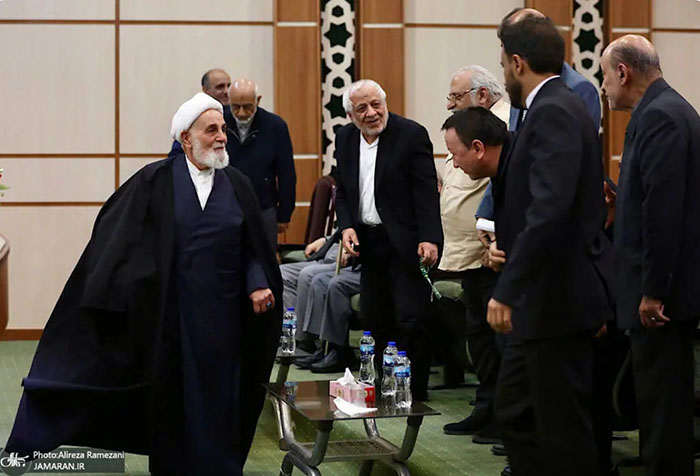The early 1960s marked a turning point in Asgarovaladi’s political journey. In 1962, he met Ruhollah Khomeini, at the time an emerging clerical critic of the Shah. The encounter had a profound effect on him. Khomeini’s uncompromising opposition to the Pahlavi regime, his demand for clerical authority in governance, and his framing of political struggle as a religious duty resonated deeply with young activists like Asgarovaladi.
In 1963, amid escalating tensions between clerics and the government following Khomeini’s arrest, Asgarovaladi co-founded the Islamic Coalition, or “Hey’at-e Mo’talefeh-e Eslami,” with other religiously motivated activists. The group represented the fusion of bazaar networks, conservative clerical circles, and politically active youth. It soon became one of the most influential underground organizations opposing the Shah and played a critical role in mobilizing protests during the 15th of Khordad uprising in June 1963.
The Islamic Coalition was driven by a belief in religious governance, social justice, and resistance against tyranny. Asgarovaladi later described its formation as one of the most decisive steps in the spread of revolutionary sentiments. The organization’s activities went far beyond demonstrations; it became engaged in ideological education, organizational work, and eventually armed struggle.

